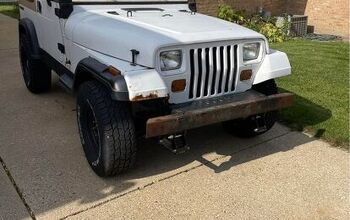Piston Slap: The Best Laid Schemes of Mice and Men…

TTAC commentator sprite948 writes:
Sajeev,
I once owned, to my sorrow, a 1978 Saab Turbo. The bearings in the snail went belly up in about 50,000 miles, which pretty much made the turbo a maintenance item that needed regular replacement.
So now we see increasing numbers of vehicles with smallish engines with turbos. What’s your estimate of their longevity?
Sajeev answers:
Luckily, these modern motors won’t fail like an old turbo mill from the disco era. But I don’t like these new turbo motors in mainstream machines: I’d prefer more modestly sized platforms, with cheap/simple naturally aspirated powertrains to net the same improvement in fuel economy. Or Corvettes/Panther-like rigs with tons of low-end grunt (i.e. no need to run WOT) and tall gearing.
And now that I got that out of the way…
Most OEM’s work hard to minimize component failure in the first 100,000 miles. And these new crop of turbocharged and direct injected engines will pass that test for a bazillion reasons, all stemming from improved technology across the R&D spectrum. But, and there’s a big butt:
1. Regular oil changes with the right type of oil, as per manufacturer guidelines. And with that in mind, insert VW/Audi 1.8T engine sludging joke here.
And if you expect the vast majority of modern Turbo engines to not have a turbo failure before 250,000 miles, well don’t bet on it. And that’s not a slam on auto manufacturers: that’s a slam on the 2nd, 3rd, or 4th owner of these vehicles.
Send your queries to sajeev@thetruthaboutcars.com. Spare no details and ask for a speedy resolution if you’re in a hurry.

More by Sajeev Mehta


































Comments
Join the conversation
***...As always, I could be wrong***... ... but all cars are built to a price point, and this is especially true of the EPA gas mileage goal post aiming vanilla commuter cars, many of which are now equipped with relatively tiny motors packing turbos but pulling an equivalent weight of what would have been an early 2000s midsize vehicle (e.g. Chevy Cruz 1.4 turbo weighs over 3100 pounds). Heat soak hasn't gone away. All the claims about the better durability and longevity of modern day turbos vs previous generations ones may or may not be true (it's probably akin to 1/2 true in volume), but even the best improvements in design and materials will only delay (and how much delay is the real question) and not defeat heat soak as the bane of the internal combustion motor. If these new vehicles were equipped with truly innovative cooling systems, which doubled or tripled the amount of cooling capacity that flowed through the gills with every 1000rpm of spooling, that may be a genuine method of effectively combating thy nemesis, heat soak, but I don't see that possibility given the cooling systems these same cars are equipped with. But ...***As always, I could be wrong, and I've been wrong before***...and maybe I'm absolutely wrong, and the new unobtanium alloys and such that these version 2.0 and 3.0 turbos are made are enough to defeat the heat (and coking). As they say, time will tell.
I get my oiled changed like religion, thanks dad. Realistically I should look at a turbo failure as no worse than a water pump or alternator failure? Oh wait, doesn't BMW uses turbos and a plastic water pump?
Mopar made lots and lots of eononmy cars with turbos in the late eighties while these cars had their share of problems most of them were not caused by the turbo. I think it's more about correct engineering in this day in age then what type of engine aspiration.
I think your absolutely right about the 100,000 mile claim, most of the tightly wound 4-banger turbos will go that far with no worries. Beyond that it's a crap shoot. And when these things go, they GO, as in just not worth it to fix and keep anymore. So if 250,000 miles is the new 100,000 miles then I really wonder about all these turbo 4s, I just don't see them going the distance.